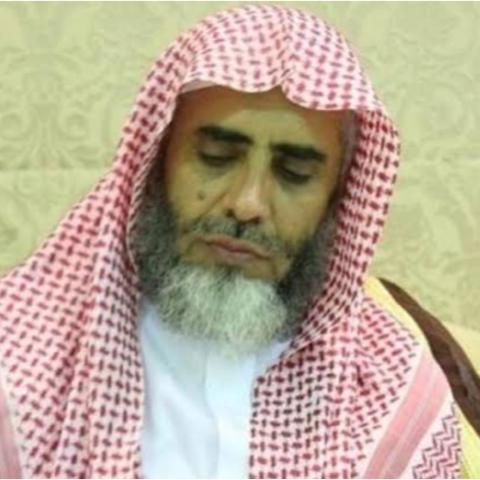
The United Nations Working Group on Arbitrary Detention has issued its Opinion No. 55/2023 concerning the eminent Saudi law professor and preacher Awad bin Mohammed Al Qarni, in which it acknowledged that the restriction of his liberty constitutes arbitrary detention contrary to international human rights law, in particular the Universal Declaration of Human Rights.
In the Opinion adopted at its 97th session, held from 28 August to 1st September 2023, the experts of the Working Group criticized the unfair trial of Mr. Al Qarni for exercising his right to freedom of expression following his criticism of the campaign of arrests and travel bans on Saudi intellectuals and opinion leaders.
Alkarama had addressed UN human rights experts regarding the case of Mr. Awad Al Qarni, a sixty-seven-old arrested by the Saudi intelligence services in 2017 during a widespread crackdown on preachers, human rights defenders, journalists and businessmen, including members of the royal family.
Condemnation of the authorities
In its Opinion, the Working Group, which echoed and refuted the Saudi government's responses, called on the Saudi government to take urgent measures to ensure the immediate release of Dr. Al Qarni and to provide him with compensation.
In view of the reliability of the information provided by Alkarama, the Committee considered that Mr. Al Qarni had been subjected to arbitrary pre-trial detention and enforced disappearance for several weeks after his arrest and until he was allowed to make a brief phone call to inform his relatives that he was being held in Dhahban prison, in Jeddah. He was then again isolated from the outside world and detained for almost six months without his family being allowed to visit him. It was only after more than five years in detention that Mr. Al Qarni's family was informed of his risk of being sentenced to death.
The Working Group has consistently held that the detention of persons in secret and undisclosed locations and in undisclosed circumstances of a person's family constitutes a violation of the right of the person concerned to challenge the lawfulness of his or her detention before a court or tribunal.
The experts noted that the Government had not provided in its reply the reasons why Mr. Al Qarni's whereabouts had not been disclosed to the family and his lawyer at the time of his arrest and detention.
The Working Group recognized that Mr. Al Qarni's deprivation of liberty was the result of the exercise of his rights under articles 18, 19 and 20 of the Universal Declaration of Human Rights, and that the charges against him relate to acts relating to his right to freedom of opinion and expression, especially as an academic and religious scholar calling for governance reform in his country, greater democratic participation, accountability and respect for human rights.
Alkarama's actions
Alkarama had adressed to several UN human rights experts about Dr. Awad Al Qarni, whom the Saudi authorities accused of using social networks (Twitter and WhatsApp) to publish information that they described as "hostile" to the Kingdom.
While Saudi Arabia continues to crack down on its opponents online, the use of social media remains particularly monitored, and any criticism of the policies of the kingdom's authorities has been criminalized since the beginning of Mohamed Bin Salman's rule.
Arbitrarily detained since his arrest, Mr. Al Qarni faces the death penalty for peacefully expressing his views on social media.
Concerned about his situation, Alkarama urgently addressed the UN Working Group on Arbitrary Detention on 28 February 2023 calling on it to urge the Saudi authorities to release him.
Alkarama's complaint
In its complaint, Alkarama stressed that Mr. Al Qarni's deprivation of liberty is legally unfounded and therefore arbitrary in that it does not meet the standards set out in the Basic Principles on Detention.
Alkarama informed the UN independent experts that the trumped-up accusation against Mr. Al Qarni and for which the Saudi Public Prosecutor's Office is seeking the death penalty stems from a simple use of social media such as WhatsApp and Twitter (platform X).
In its complaint to the Working Group, Alkarama highlighted the arbitrary nature of his detention for exercising his right to freedom of opinion and expression, which includes the freedom to seek, receive and impart information and ideas of all kinds. Alkarama also drew the attention of experts to numerous violations of the victim's fundamental rights to a fair trial, including the right to legal assistance throughout their trial.
Concerned that the trial and treatment inflicted on Mr. Al Qarni is a direct result of the expression of his political opinions, Alkarama called on the UN Working Group to recognize the arbitrary nature of the deprivation of liberty of the Saudi academic and to urge the State Party to release him without delay, in accordance with its international obligations.
In January 2023, Alkarama had submitted the academic's case to the Special Rapporteur on extrajudicial, summary or arbitrary executions, the Special Rapporteur on the right to freedom of opinion and expression and a number of other UN procedures concerning the risk that Mr. Al Qarni faces of being sentenced to death, a sentence requested by the Saudi prosecutor's office.
Alkarama strongly condemned the use of the judicial system as a political tool to assassinate opinion leaders and activists in Saudi Arabia through death sentences handed down in cases related to the exercise of the rights to opinion and freedom of expression and peaceful dissent such as in the present case.
